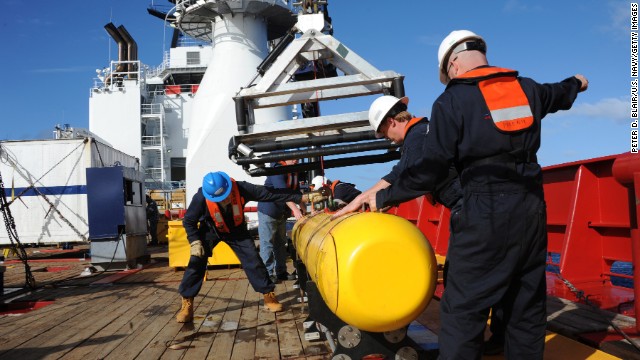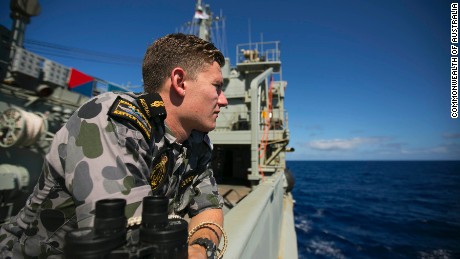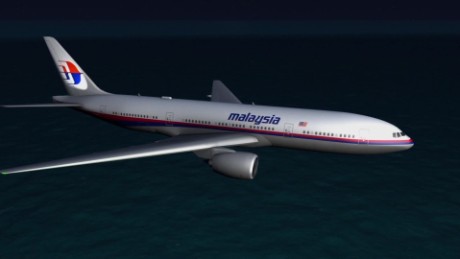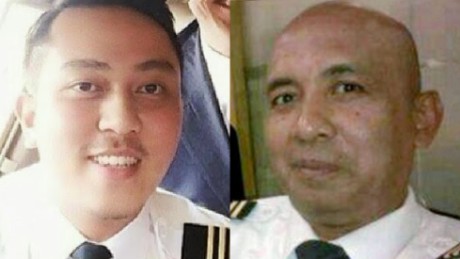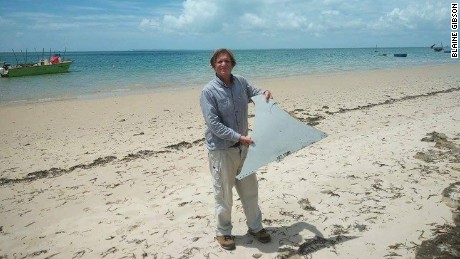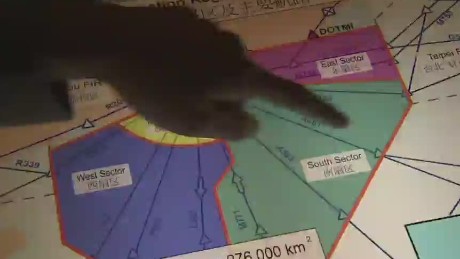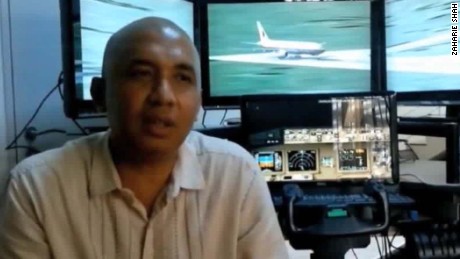Story highlights
- Analyst: In a "tug of war among nations," passengers' families seem to be stuck in the middle
- Najib Razak announces that the debris found on Reunion island was part of missing aircraft
- A French prosecutor says more tests will be done to determine whether it's from MH370
(CNN)Malaysia's Prime Minister left no room for doubt.
The piece of a plane wing that washed up on an island in the Indian Ocean, he announced, was indeed part of missing Malaysia Airlines Flight 370.
"It is my hope that this confirmation, however tragic and painful," Prime Minister Najib Razak said, "will at least bring certainty to the families and loved ones of the 239 people on board MH370."
But a top French prosecutor was slightly less definite when he stepped up to a podium in his country an hour later.
There are "very strong presumptions" that the part belongs to the missing Boeing 777, Paris Deputy Prosecutor Serge Mackowiak said, adding that more testing will be done to prove it conclusively.
France, which already had opened a criminal investigation into the plane's disappearance, has been drawn deeper into the matter after the plane part's discovery last month on Reunion island, a remote part of its overseas territory. Investigators at a specialized laboratory in Toulouse are examining it.
Even with tests ongoing, analysts said the Malaysian government's highly anticipated announcement marks a key step in the investigation into what happened to the plane.
But several passengers' family members said they weren't sure what to believe after hearing both officials speak.
"I was left somewhat confused and, frankly, a little angry and dismayed," said K.S. Narendran, whose wife was one of the passengers.
Authorities announced their conclusions, Narendran said, without detailing their findings.
"I didn't hear facts. I didn't hear the basics. I heard nothing," he said, "and so it leaves me wondering whether there is a foregone conclusion and everyone is racing for the finish."
Investigators analyze debris
When the debris -- a part of a wing known as a flaperon -- washed up July 29 on Reunion island, its discovery was considered possibly the first physical evidence that might help shed light on a mystery that has vexed even the most seasoned aviation experts: How could a commercial airplane just vanish?
On Wednesday, investigators met at a specialized laboratory near Toulouse to begin examining the part. Their work took hours, and Najib made the announcement very early Thursday, Kuala Lumpur time, 515 days since the flight bound for Beijing from the Malaysian capital disappeared with 239 people aboard.
Shortly before he spoke, Malaysia Airlines sent a message to victims' families saying a "major announcement" that the flaperon was from the missing plane was imminent.
"This has been confirmed jointly by the French Authorities, Bureau d'Enquetes et d'Analyses pour la Securites de I'Aviation Civile (BEA), the Malaysian Investigation Team, Technical Representative from PRC and Australian Transportation Safety Bureau (ATSB)," the airline's statement said.
The French prosecutor, who's involved in a criminal probe that country launched because four French nationals were aboard the flight, said the flaperon matches a Boeing 777, and the characteristics of the part match the technical specifications provided by Malaysia Airlines for that part of the missing aircraft.
But he phrased his assessment differently from the Malaysian Prime Minister, saying the analysis of the flaperon would continue in order to provide "complete and reliable information."
It sounded "less certain," said Mary Schiavo, a CNN aviation analyst and former inspector general for the U.S. Department of Transportation.
"Really, we didn't get too much more than what Boeing already told us from looking at the pictures," she said. "So I was actually a little disappointed, thinking what the families must think on hearing that."
In a "tug of war among nations," she said, the passengers' families seem to be stuck in the middle.
Relatives of those on board have said real closure won't come until their family members' remains have been recovered and the truth about what happened to the plane is established.
Progress on those fronts is unlikely to be made unless the Australian-led underwater hunt locates the aircraft's wreckage and flight recorders somewhere in the huge southern Indian Ocean search area, which covers and area bigger than the U.S. state of Pennsylvania.
Global effort to solve mystery
Malaysia, the country where MH370 began its journey and whose flag it was carrying, is in charge of the overall investigations.
But there are a number of other countries involved.
French authorities have also opened their own criminal investigation last year into possible manslaughter and hijacking in the loss of MH370.
Officials from Australia earlier said they thought it was likely that the Boeing wing component was from MH370 -- no other 777 aircraft was believed to have gone missing in the Indian Ocean.
Australia is overseeing the underwater search for the wreckage because the plane is believed to have gone down far off its western coast, in a remote part of the southern Indian Ocean.
China, which had the largest number of citizens on the plane, has been involved in decisions about the search for the plane.
U.S. and British government agencies -- as well as experts from Boeing and the satellite company Inmarsat -- have contributed to the investigations.
The Toulouse lab previously examined wreckage from Air France Flight 447, a passenger jet that went down in the Atlantic Ocean en route from Rio de Janeiro to Paris in 2009.
The remnants of a suitcase found on Reunion the day after the flaperon was discovered have been sent to a lab outside Paris for analysis.
Debris won't change underwater search
The wing part found on Reunion won't prompt a rethink of the search area, Australian officials say.
"Because of the turbulent nature of the ocean, and the uncertainties of the modeling, it is impossible to use the La Reunion finding to refine or shift the search area," the Australian Transport Safety Bureau said in a report published Tuesday, citing the country's national science agency.
That the debris drifted thousands of miles to the west of the underwater search area is consistent with ocean drift models, Australian officials say.
The ATSB report admitted, though, that an earlier prediction that some debris from MH370 could wash up in July 2014 on the shores of the Indonesian island of Sumatra, north of where the aircraft is calculated to have entered the ocean, was incorrect because of an error in the use of wind data.
Searches are taking place on Reunion for more possible debris from MH370. But Australian Deputy Prime Minister Warren Truss has said he's doubtful many pieces are likely to turn up.
"Reunion Island is a pretty small speck in a giant Indian Ocean," he told The Wall Street Journal. "Most pieces that were even floating by the time they got to this area would simply float past."





